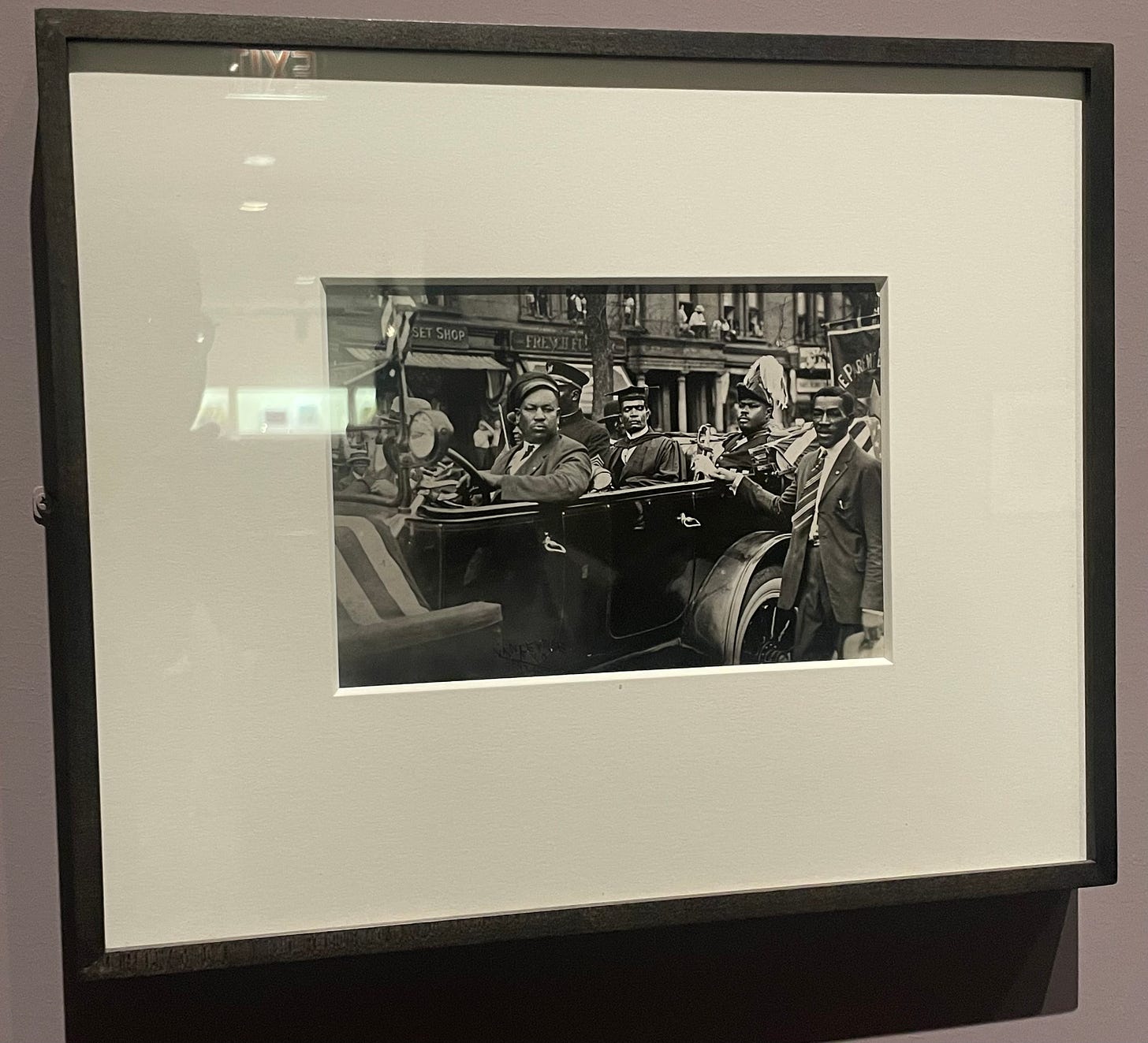This week I decided to take a day trip with some friends to a shore town in one of New Jersey’s reddest counties. Both of my friends are black American males in their late twenties. One is a cop who plans on voting for Trump, the other is a special-ed teacher and sports coach who’s leaning toward Harris. At dinner, we had a lively debate about which politician’s policies were most compelling. The cop argued that Trump’s platform—despite his politically incorrect rhetoric and the racial animus of some of his most ardent supporters—is in the best interest of black Americans.
Later that evening, we made our way past gift shops on the boardwalk selling “kiss me I’m Italian” short-shorts and MAGA hats and into a bar, where my friends turned out to be the only people of color. Some of the bar’s patrons made small talk with us, while one middle aged woman—who was clearly intoxicated—kept staring at us with suspicion. A few minutes later, she stumbled over to them to let them know that their kind didn’t “belong here.”
As we left the bar, my friend expressed his frustration with the fact that the people with whom he’s politically aligned sometimes assume he’s up to no good because of the color of his skin—unless, of course, he’s wearing his uniform.
This whole episode is emblematic of the extent to which political campaigns are—thanks to both the media’s coverage of them and the candidates themselves—enshrouded in sensational narratives and “vibes,” occluding their policy platforms and thus the opportunity for substantial and fruitful debate within our public discourse. Sadly, discussions that center on policy like the one I engaged in earlier that evening are hard to come by these days.
This week in Compact
“The mayor who promised to be a crimefighter turned out to be the city’s most prolific criminal,” writes Alexander Nazaryan of recently-indicted Eric Adams of New York City, who he warns “isn’t going to go down easy. High-priced attorneys will do everything they can to stymie the proceedings against him.”
Musa al-Gharbi argues that given the fact that Harris’s policy platform—which she largely avoids talking about—is nearly “copied and pasted” from that of Biden, “it’s hard to tell how a Harris-Walz White House might differ, if at all, from the incumbent Biden-Harris administration.” This is on purpose, says al-Gharbi, as Harris “is evidently hoping that she can just ride into the White House based on vague but positive messaging and public disdain for Trump…”
Though Justin Vassallo concedes that the current macroeconomic picture “would indeed seem healthy, particularly when compared to European countries like Britain and Germany or to America’s halting recovery from the Great Recession. But there are other indicators that underscore how fragile the recovery is—and portend worse to come.”
A new report reveals that “China’s state-backed solar industry, bolstered by massive government subsidies, is exploiting loopholes in US policy and using taxpayer-funded IRA tax credits to expand its dominance over the global solar market, including in the United States.” Nick Iacovella warns that “if lawmakers don’t act, the future of solar manufacturing—and the well-paying jobs of the industry—will belong to China.”
In light of recent comments by Mark Robinson, and other black public figures like Candace Owens and Kanye West, Mark Christian Thompson offers a historical overview of “black fascism,” ultimately concluding that “by aligning himself with National Socialism, Robinson has undermined his own usefulness for the MAGA movement.”
Last week, Ursula von der Leyen announced her team for the next European Commission. Thomas Fazi writes that “by appointing loyalists to key positions, sidelining critics, and creating a complex system of dependencies and overlapping responsibilities in which no one can gain too much influence, von der Leyen has secured complete control over the European Union’s executive body.”
George Dunn offers a riveting profile of the Canadian political philosopher George Grant, who did not defend “nationalism as an ideology, but Canada as a nation,” wishing to “preserve Canada’s uniqueness against those who would transform it into a cultural and political vassal of the United States.” A “precursor of the new breed of conservative social democrats who have recently appeared on the political landscape,” his works shed a light on the hypocrisy “crouching behind the altruistic rhetoric about ending suffering are practical concerns about the cost and trouble of prolonging unproductive lives” currently taking over Canadian politics.
In a review of Sally Rooney’s latest novel Intermezzo, Valerie Stivers says that “Rooney’s enormous popularity, I suspect, is due to the fact that she allows modern liberal audiences to enjoy the enduring appeal of old-fashioned, Christian, and specifically Catholic romantic forms without realizing that is what they are doing.”
And make sure to check out the team discuss J.D. Vance’s peace plan for Ukraine, the passing of Marxist literary critic Frederic Jameson, and Olivia Nuzzi’s media firestorm on the podcast, the latest episode of Blame Theory, and to read Sohrab Ahmari’s take on the NYC subway system in his newsletter.
Raising the standards of discourse
In his piece, Thompson mentions how some “black fascists” take their cues from Marcus Garvey. Surely, the separatist and overly racialized tendencies of Garveyism can veer toward fascism, but a it can also inspire a form of populist communitarianism and a productive black-pride rhetoric—one that is much more substantial than the identitarian and elitist musings characteristic of BLM and mainstream DEI programming. I wrote about the possibility of a modified black radicalism—devoid of antagonistic and violent rhetoric and put to the service of empowering small black communities—in my pieces in Sublation Media on the legacy of Garveyism and in Compact on Ras Baraka’s approach to policing in Newark.
Readers often express to me that part of what draws them to reading Compact is our focus on policy over ideology and “vibes,” and our commitment to forging a space where conflicting ideas can be discussed with precision and nuance—to which the variety of pieces published in our pages this week alone are a testament.
If you’re looking for more content that features intelligent discussions about concrete issues between people of various political commitments, might I suggest this clip of a 1994 debate on the “Women’s Movement” featuring Arianna Huffington, Betty Friedan, and Camille Paglia. And while you’re at it, check out the numerous discussions between the ever lively and heartwarming Drs. Cornel West and Robert P. George.




